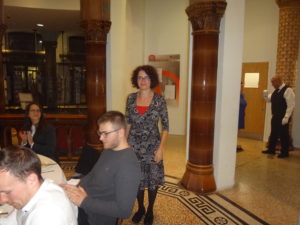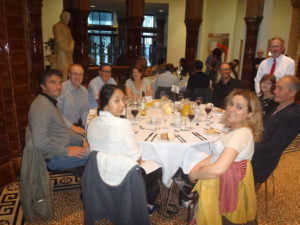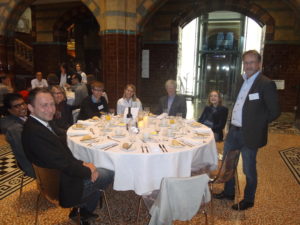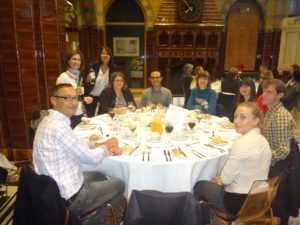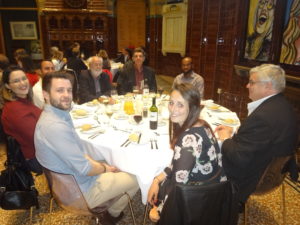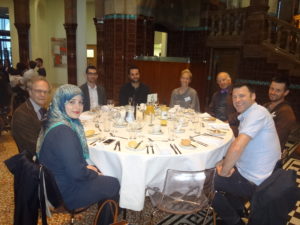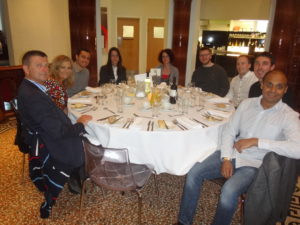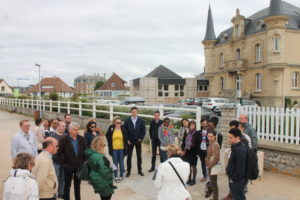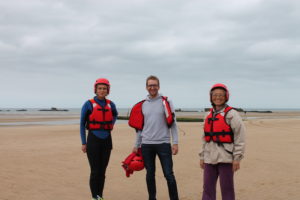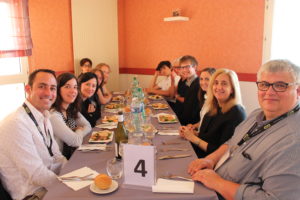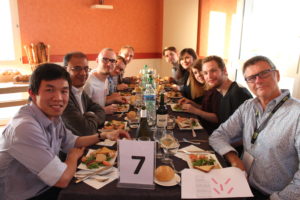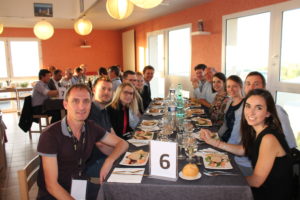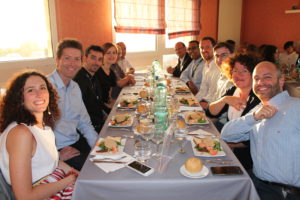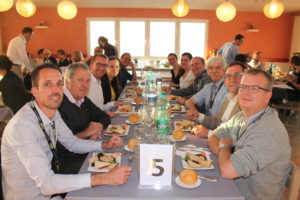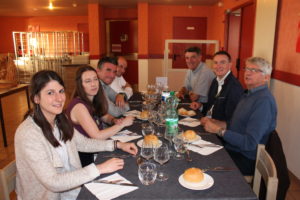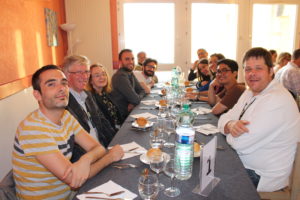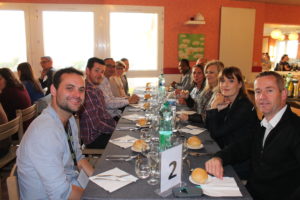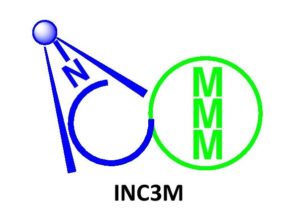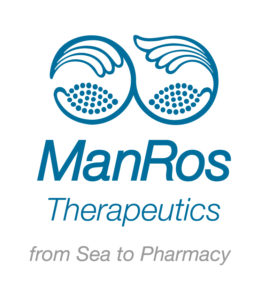| Prof. Stephen Husbands Department of Pharmacy & Pharmacology, Centre for Therapeutic Innovation, University of Bath (UK)  | A medicinal chemist primarily involved in the development of ligands that target the CNS. My main research interests relate to neuropsychological diseases and targets, in particular the development of low abuse liability analgesics and new treatment agents for drug abuse, depression and anxiety. Recent research has focussed on the development and therapeutic potential of ‘selectively promiscuous’ ligands and has been driven by the understanding that CNS disorders are rarely simple, requiring complex solutions. In closely related projects we are exploring the pro- and anti-inflammatory activities of opioids in the periphery and in the CNS with multiple potential applications, including improved analgesics and new anti-inflammatory agents, particularly for dermatology. |
| Prof. Paul Leeson Paul Leeson Consulting. Honorary Prof. of Medicinal Chemistry, School of Pharmacy, University of Nottingham (UK) 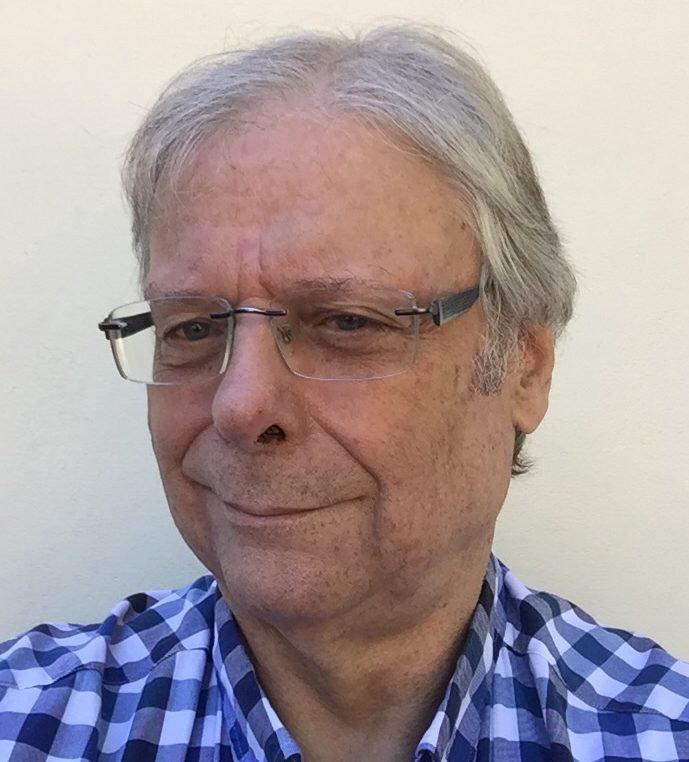 | Paul Leeson is a medicinal chemistry consultant with >35 years’ experience in major pharmaceutical companies: Smith Kline and French, Merck Sharp and Dohme, Wyeth (USA), AstraZeneca, and GlaxoSmithKline. Since 2014 he has advised large and small pharmaceutical companies, start-ups, and academia. At AstraZeneca (1997-2011) Paul was head of medicinal chemistry at the Charnwood site, and as leader of the Global Chemistry Forum he was accountable for the Company’s chemistry strategy. Paul’s drug discovery contributions have been in the cardiovascular, neuroscience, respiratory and inflammation therapy areas. He has a special interest in compound quality, recognised in 2014 by the receipt of the Nauta Award from the European Federation of Medicinal Chemistry. Paul has a PhD from the University of Cambridge and holds an honorary professorship at the University of Nottingham. |
| Dr Vania Moreira Strathclyde Institute of Pharmacy and Biomedical Sciences, University of Strathclyde (UK) 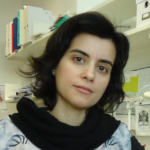 | Dr. Moreira is a Chancellor’s Research Fellow (Lecturer in Medicinal Chemistry) at the Strathclyde Institute of Pharmacy and Biomedical Sciences (SIPBS), at the University of Strathclyde, UK. She carries the Title of “Docent” (Adjunct Professor) from the University of Helsinki in Finland, where she has been a Principal Investigator and group leader since 2015. Dr. Moreiraholds a doctoral degree in Pharmaceutical Organic Chemistry from the University of Coimbra in Portugal, which she completed in 2008. In addition to Portugal, she has carried out research at the University of Maryland School of Medicine, Baltimore, USA (2006-2007), at the University of Ferrara, Italy (2011) and at the Faculty of Pharmacy, University of Helsinki, Finland (2012-present). Her current research is devoted to exploring the medicinal chemistry of the diterpenoids, namely the resin acids and their derivatives, and has been funded by several international sources including the Finnish Funding Agency for Innovation (TEKES), the Academy of Finland, the Magnus Ehrnrooth Foundation, the Huonekalusäätiö, the Portuguese Science and Technology Foundation (FCT), the European Union (Seventh Framework Programme FP7) and Tenovus Scotland. In 2016, she was highlighted as one of the “New talents- Europe”, by the European Federation of Medicinal Chemistry (EFMC). More details can be found from https://tinyurl.com/y8skw9fn |
| Dr Geoffrey Wells School of Pharmacy, University College London (UK)  | Geoff Wells is an Associate Professor in Medicinal Chemistry at UCL School of Pharmacy. He pursued a PhD in medicinal chemistry at the University of Nottingham under the supervision of Professor Malcolm Stevens FRS. He spent four years as a postdoctoral researcher in the CRUK Gene Targeted Drug Design Research Group at the School of Pharmacy, University of London, followed by two years working for Pharminox Ltd, an anticancer drug discovery company, as Drug Discovery Project Leader. In October 2007, Dr Wells took up the position of Lecturer in Medicinal Chemistry at The School of Pharmacy. His research work has focused on the design and synthesis of compound classes that affect redox homeostasis, interact with DNA in a sequence selective manner and that have selective cytotoxicity profiles. His current interests include the rational design of agents that modulate cytoprotective effects such as the Keap1-Nrf2 system that regulates antioxidant response element genes. |
| Prof. Mike Waring Northern Institute for Cancer Research, Newcastle University (UK) 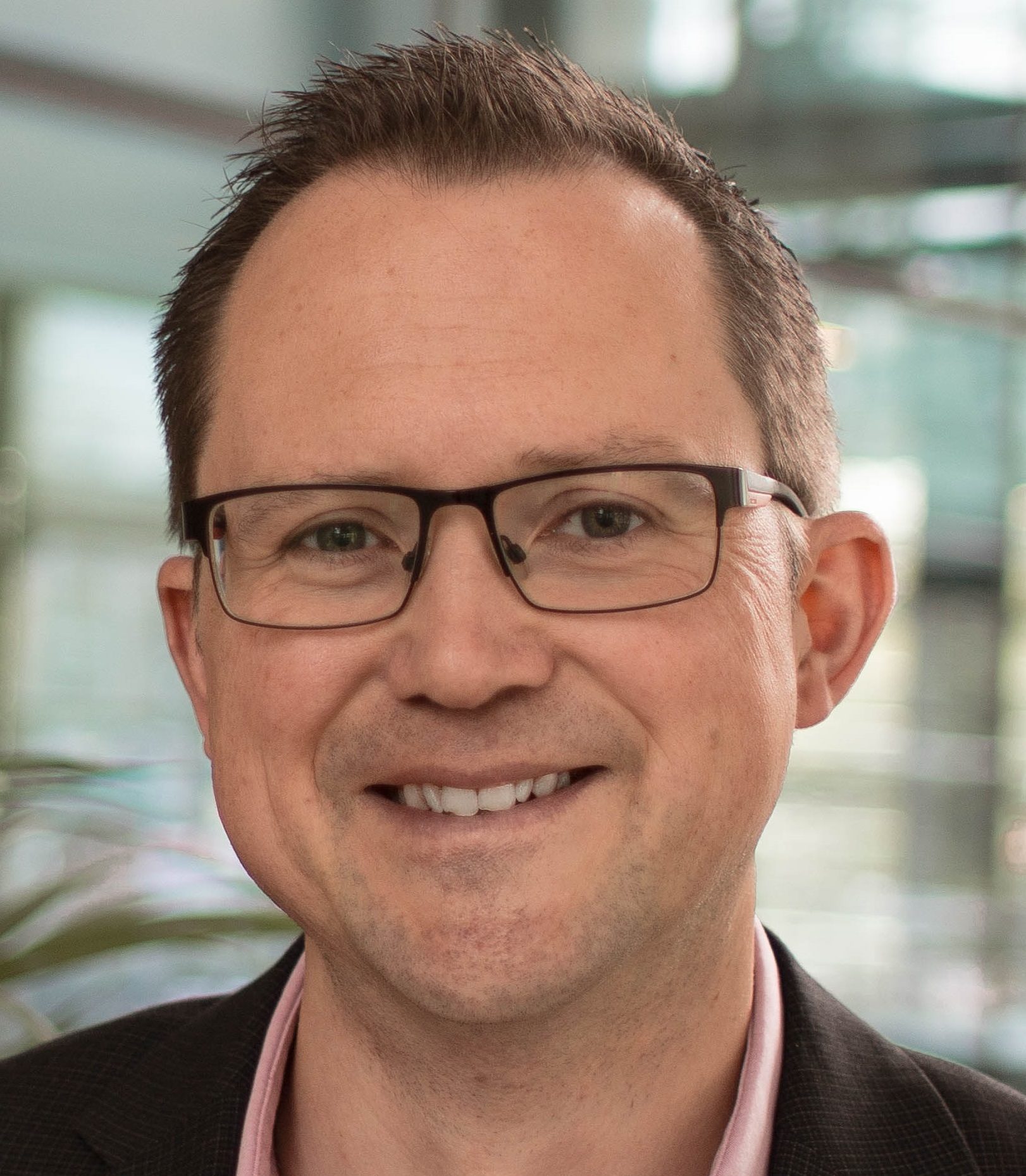 | Prof. Mike Waring holds the Chair of Medicinal Chemistry at Newcastle University (2015-present). He did his degree and PhD in Chemistry at the University of Manchester, completing his PhD studies with Tim Donohoe in 1999. He carried out postdoctoral work in the group of Phil Magnus at the University of Texas at Austin (2000-2001). He then joined AstraZeneca as a medicinal chemist (2001-2015) where he became Principal Scientist. Mike has worked on drug discovery programmes across the spectrum of drug discovery from hit generation to late optimisation and across multiple therapy areas, chiefly oncology and diabetes. He has led chemistry on programmes that have discovered 17 candidate drugs, including the mutant EGFR inhibitor osimertinib (TAGRISSO™). Mike not leads the medicinal chemistry in the Drug Discovery Group at the Northern Institute for Cancer Research, a CRUK Drug Discovery Centre. He is the author of over 50 papers and over 30 patents. His current research involves the discovery of new cancer treatments in areas of unmet need and new approaches to hit finding and optimisation. |
| Dr Chris De Graaf Director of Computational Chemistry, Sosei Heptares, Cambridge (UK) 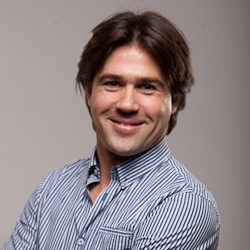 | Dr. Chris de Graaf is Head of Computational Chemistry at Sosei Heptares, an international biopharmaceutical group focused on the design and development of new medicines originating from its proprietary GPCR-targeted StaR® technology and Structure-Based Drug Design platform capabilities (www.soseiheptares.com). In this role Chris is leading the development and application of computer-assisted drug design approaches across the GPCRome to help Sosei Heptares advance a broad and deep pipeline of partnered and in-house drug candidates in multiple therapeutic areas including neurology, immuno-oncology, gastroenterology, inflammation and rare/specialty diseases. He performed his Ph.D. research at in Computational Medicinal Chemistry and Toxicology at VU University Amsterdam and worked as postdoctoral fellow with AstraZeneca Pharmaceuticals and Strasbourg University (Dr. Rognan) on the development and application of novel GPCR modeling and virtual screening techniques. Before his appointment as Head Computational Chemistry at Sosei Heptares, Dr. De Graaf led the Computational Medicinal Chemistry group at VU University Amsterdam, working on the development and application of structural cheminformatics and computational chemistry methods to complement synthetic medicinal chemistry, molecular pharmacology, and structural biology studies in drug discovery research projects. |
| Prof. Paul Wyatt Wellcome Centre for Anti-Infectives Research, School of Life Sciences, University of Dundee (UK) 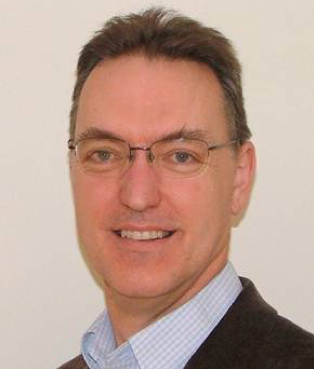 | Paul is currently Head of the Drug Discovery Unit, University of Dundee and Director of the Wellcome Centre for Anti-Infectives Research. His role is to help develop translational research at Dundee, by bringing together his and other’s experience of Drug Discovery in the Pharma/Biotech sector with basic academic research to deliver new treatments for a broad range of diseases e.g. malaria, leishmaniasis and cancer. Previously Paul worked within the BioPharma industry (23 years), gaining experience across a range of therapeutic areas, e.g. oncology, oxytocin antagonists; antiviral agents; TB; playing a significant part in seven compounds entering pre-clinical development. He gained a rare breadth of knowledge and experience of drug discovery by designing the first analogues of a fragment screening hit, and by leading the resulting drug discovery project through to pre-clinical development, culminating in one of the first compound from fragment based drug discovery reaching clinical trials. Paul obtained his BSc and PhD in Chemistry from the University of Birmingham. |
| Prof. John F. Gilmer School of Pharmacy and Pharmaceutical Sciences, Trinity College Dublin (Ireland) 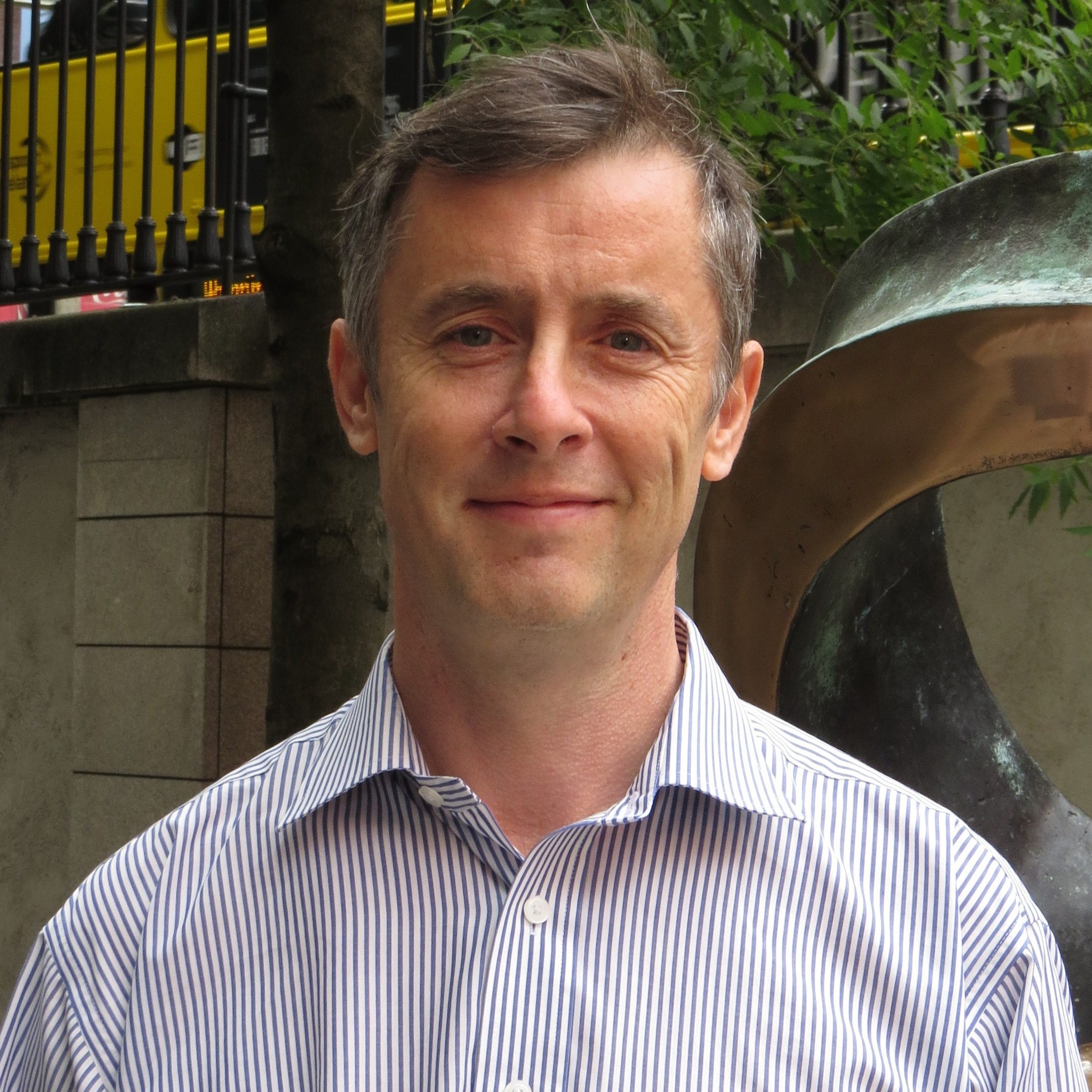 | John Gilmer is Professor in Pharmaceutical Chemistry in Trinity College Dublin (TCD). John holds a PhD in molecular recognition chemistry from TCD (1995). He held postdoc and visiting researcher positions in commercial pharmaceutical R&D at TCD and Queens University Belfast from 1995 to 1998 when he was appointed lecturer in the School of Pharmacy at TCD. He contributes to the TCD MPharm Programme and to a range of postgraduate courses related to pharmaceutical research and manufacturing, including MSc programs in Pharmaceutical Sciences and Pharmaceutical Manufacturing Technology (QP). He was Director of Teaching and Learning Postgraduate (2014-2018) and was recently elected Head of School, Pharmacy and Pharmaceutical Sciences. John has an active research group in varied fields of drug discovery and delivery. He is a co-founder of Solvotrin Therapeutics and its Director of Research. |
| Prof. Pierre Verhaeghe Faculty of Pharmaceutical Sciences, Paul Sabatier University; CNRS, Toulouse (France) 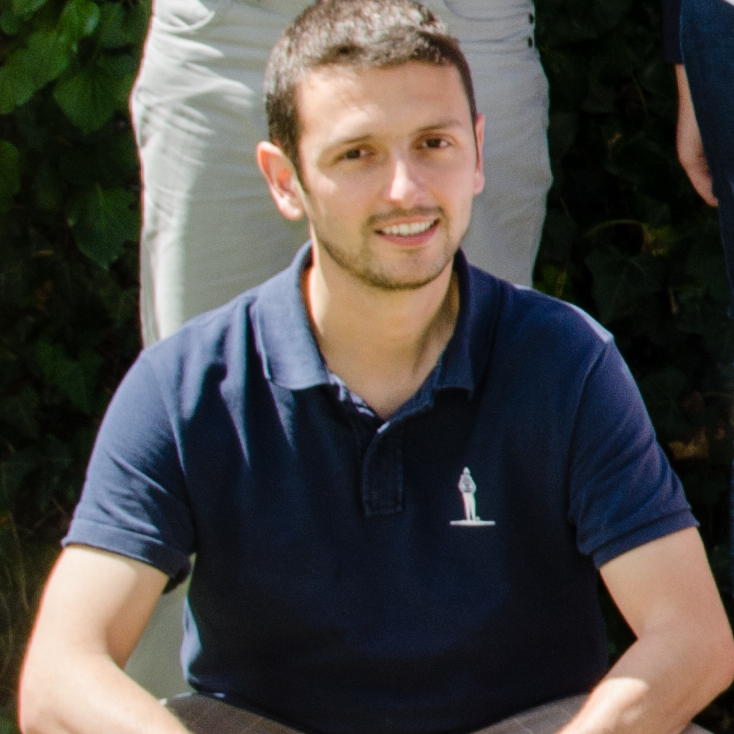 | Between 1997 & 2007, Pierre Verhaeghe studied Pharmacy and Organic Chemistry at the Universities of Caen, Rennes I and Aix-Marseille, where he was also pharmacy resident at the public teaching hospital (AP-HM). After a post-doc experience in the pharmaceutical industry at the J&J research center of Val de Reuil in 2008, PV joined academic research and is now, since 2013, professor of medicinal chemistry at the faculty of pharmaceutical sciences of Paul Sabatier university and team leader at the Laboratoire de Chimie de Coordination (UPR 8241) of the CNRS in Toulouse. The research activities of PV mainly focus on the design, synthesis and study of the mechanism of action of molecular or macromolecular anti-infective compounds targeting human pathogens such as intracellular protozoa (P. falciparum, Leishmania spp, Trypanosoma spp) or anaerobic bacteria (C. difficile). |
| Dr Nuria Cabedo Instituto de Investigación Sanitaria INCLIVA (Spain) 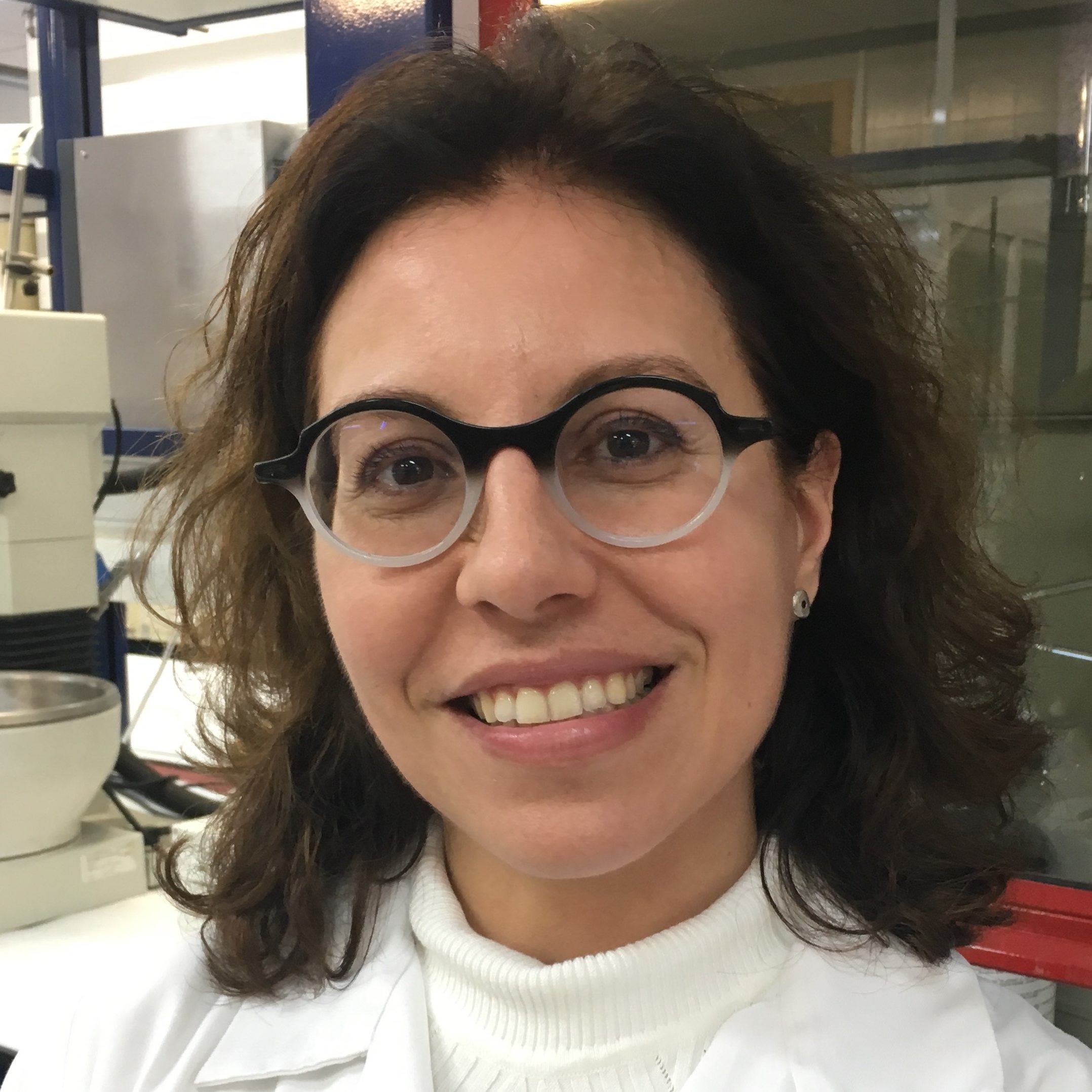
| I received my PhD in Pharmacy from the University of Valencia (2000), in the group of Prof. D. Cortes. From 2001-2004, I was a postdoctoral research fellow at several institutions (IRCOF, Rouen, CERMN, Caen, Chemistry Dept. of the University of Manchester). In 2005, I returned as postdoctoral researcher at the Centro de Ecología Química Agrícola of the Polytechnic University of Valencia. In 2015, I worked in the Biotechnology Company Biopolis of the Scientific Park of the University of Valencia. Since 2016, I was hired by the Biomedical Research Institute INCLIVA of the Foundation for the Research of the Hospital Clínico Universitario of Valencia. I have participated in 5 regionally/nationally funded projects andam a member of the Research Strategy in Personalized Medicine and Development of Innovative Medicines within the RIS3 measures framework and the COST Action MuTaLig. Since 2011, I have taught at both graduate and postgraduate levels within the Pharmacology Department, University of Valencia as an associate/invited professor. My research interests include the medicinal chemistry of natural products and synthetic analogues focused mainly on dopaminergic receptors, mitochondrial respiratory chain inhibitors, anti-inflammatory agents and PPARs, in order to treat cardiometabolic disorders and neurological diseases. |
| Dr Sébastien Gouin University of Nantes (France) 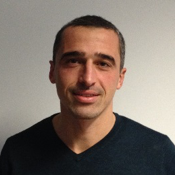 | Dr Sébastien Gouin is a CNRS research director in the laboratory CEISAM of the University of Nantes (France). He was born in Le Mans in 1976 and studied organic chemistry at the University of Nantes where he received his PhD in 2003. After postdoctoral training with Prof. Paul V. Murphy at University College Dublin (Ireland), he was appointed as a CNRS researcher in the University of Amiens. The present research activities of his group in Nantes are focused on the development of mono- and multivalent glycoconjugates interfering with carbohydrate-binding and processing proteins (lectins and glycosidases) from pathogens. |
| Dr. Yulia Sidrova University of Helsinki (Finland) 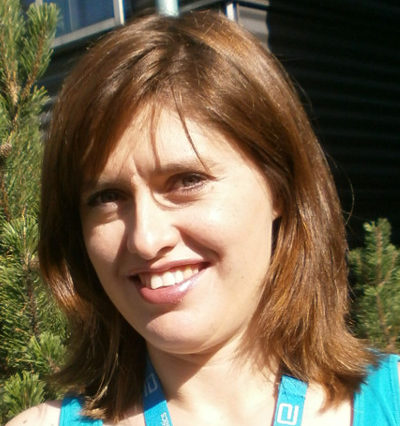 | Dr. Yulia Sidorova is a Team Leader at the Institute of Biotechnology, HiLIFE, University of Helsinki. She received her PhD in biochemistry in 2005 and shortly afterwards joined a group of Prof. Mart Saarma at the Institute of Biotechnology, University of Helsinki as a postdoctoral researcher to develop small molecules mimicking biological effects of neurotrophic factor GDNF. In 2014-2016 she made a 14-months internship in a small biotech company GeneCode Ltd as a Marie Curie fellow to learn basics of medicinal and computational chemistry. In 2013 she became a Junior Team Leader and in 2019 she received funding from Finnish Academy to start her independent research team. The main focus of Dr. Sidorova’s research is the development of small molecular weight compounds to combat neurodegeneration in Parkinson’s disease and neuropathic pain. In addition, sheparticipated in resolution of X-ray structure of GDNF co-receptors, discovery of alternative receptor for GFLs (Syndecan-3) and identification of GDNF binding determinants important for its biological activity. The main achievement of Dr. Sidorova’s team is the identification of several classes of GDNF mimetics, their characterization in vitro and in animal models of Parkinson’s disease and neuropathic pain. More information about our research can be found here: https://www.helsinki.fi/en/researchgroups/neurotrophic-factors-and-regeneration/research/gdnf-mimetics http://gdnf.mimetics.eu/ https://www.facebook.com/gdnf.mimetics/ |
| Prof. Peter Gmeiner Friedrich-Alexander-Universität Erlangen-Nürnberg 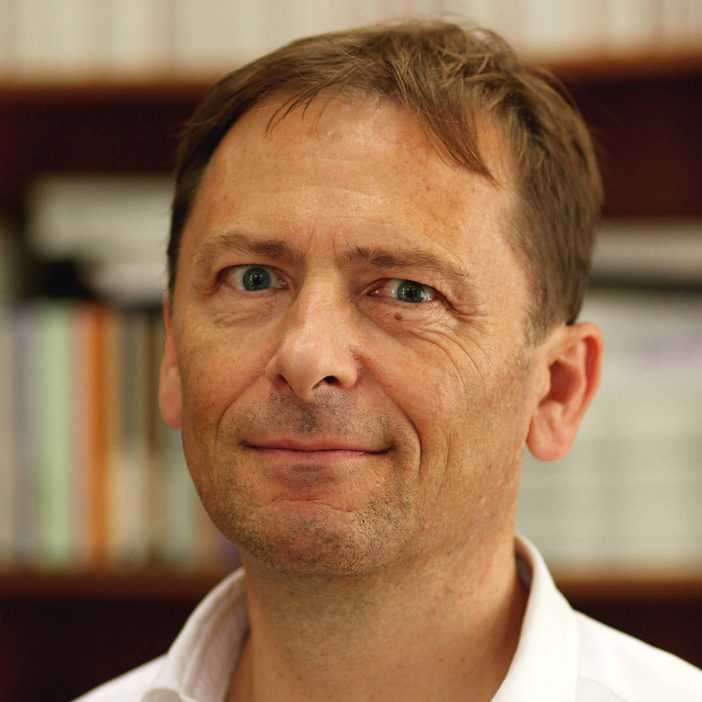 | Prof. Dr. Peter Gmeiner (*30.05.1959) received his Ph.D. in 1986 from the University of Munich. From 1987 to 1988 he was a postdoc at the University of California in Berkeley, USA. He subsequently returned to Munich as a research associate at the Institute of Pharmaceutical Chemistry. Upon receiving his Dr. Habilitus in 1992, for which he was honored with the Johann-Wolfgang-Döberreiner prize of the DPhG (1993), he was appointed at the University of Bonn as a Professor of Pharmaceutical Chemistry declining an offer for a professorship at the University of Heidelberg, at the same time. Since October 1996, he has been chaired Full Professor of Pharmaceutical / Medicinal Chemistry at the Friedrich-Alexander University Erlangen-Nürnberg. In 2000, he declined an offer for the Chair for Pharmaceutical Chemistry at the University of Münster. From 2000 to 2002, he was Senator at the University of Erlangen-Nürnberg. 2003-2010, he was a board member of the Medicinal Chemistry Section of the German Chemical Society (GDCh). Since 2008, Peter Gmeiner is chairman of the Pharmaceutical / Medicinal Chemistry Section of the German Pharmaceutical Society (DPhG). 2008-2012, he was the speaker of the Emil Fischer Graduate Programme in Pharmaceutical Sciences & Molecular Medicine (EFS). Since 2017, Peter Gmeiner is the Chairman of the Department of Chemistry and Pharmacy and Vice-Dean of the Faculty of Natural Science. Peter Gmeiner is spokesman of the Research Training Group “Medicinal Chemistry of Selective GPCR Ligands” (GRK 1910). Peter Gmeiner is a co-founder and consultant of the company Epiodyne, Inc. Peter Gmeiner has a track record of more than 250 publications in peer-reviewed scientific journals (including Nature, PNAS, Angew. Chem., J. Med. Chem., etc.) including patents and patent applications. He is an invited speaker on international conferences and has given more than 100 invited talks. Peter Gmeiner serves as referee for the Deutsche Forschungsgemeinschaft (DFG), the Alexander von Humboldt-Foundation (AvH), the DAAD and for more than 20 top ranked journals in the fields of Chemistry and Pharmacology. He is an Editorial and Advisory Board Member of a number of international journals including Bioorganic & Medicinal Chemistry, Bioorganic & Medicinal Chemistry Letters and ChemMedChem. Peter Gmeiner’s research spans the design, organic synthesis and pharmacological investigation of bioactive molecules addressing aminergic and peptidergic G-protein coupled receptors (GPCRs). Within these studies, the following topics are of special interest: Covalent and slowly diffusing ligands for GPCR crystallography, design and synthesis of novel subtype selective GPCR agonists, partial agonists and antagonists including novel antipsychotic and anti-Parkinson-active agents, development of radioligands for PET and SPECT, efficacy tuning and mechanistic studies on G-protein coupled receptors (GPCRs) involving wild-type and mutant receptors, molecular modelling of GPCRs, fancy bioisosteres for G-protein coupled receptors, development of bivalent ligands for GPCR dimers, single molecule detection of GPCR-ligand complexes by TIRF microscopy, peptidic und non-peptidic neurotensin receptor ligands, solid phase supported methodologies and their application for the discovery of GPCR ligands, ß-turn inducing peptide mimetics. |
| Prof. Rob Leurs Vrije Universiteit Amsterdam 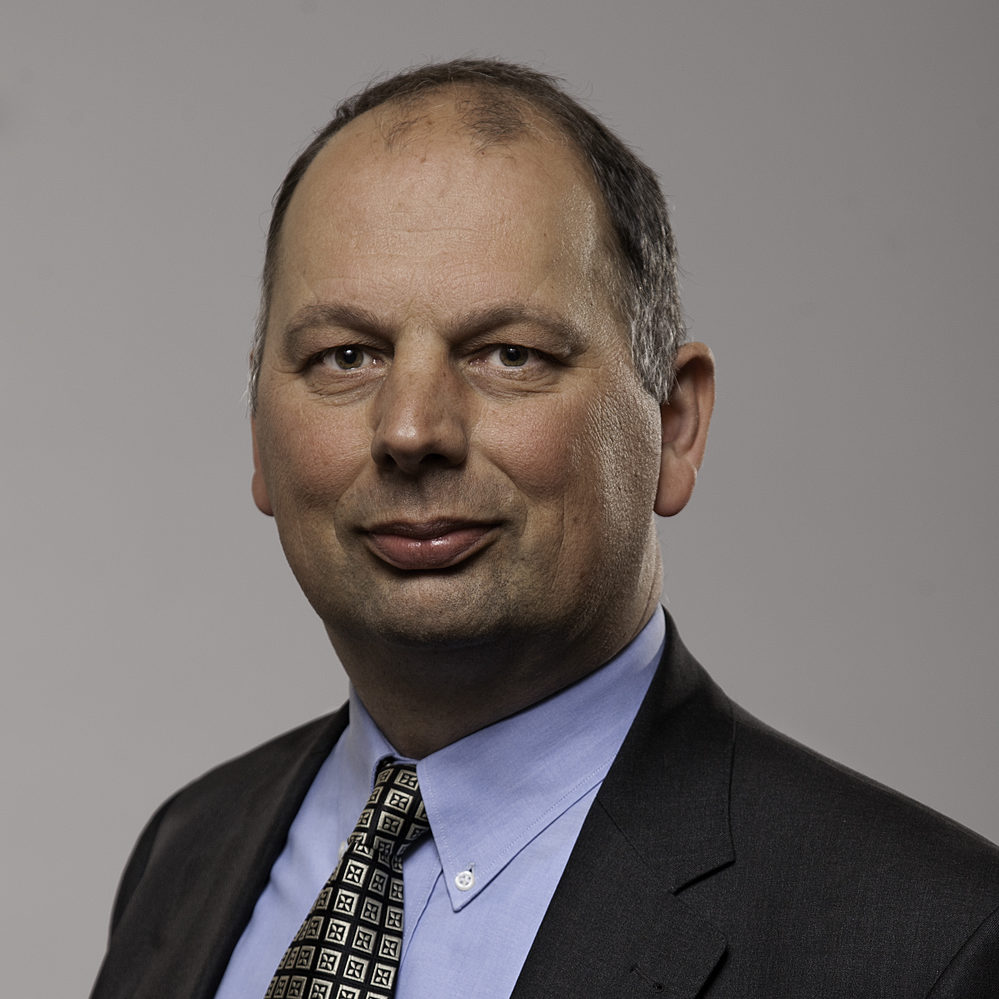 | Prof. Leurs is involved in research on G-protein coupled receptors, with specific emphasis on ligands and receptor proteins for histamine and chemokines. Moreover, he is co-founder of Griffin Discoveries, a company that valorizes the G-protein coupled receptor expertise and is currently involved in the discovery and development of GPCR receptor ligands. Next to that he has in recent years started a new line on structure-based development of potential drugs against Neglected Tropical Diseases. |
We are delighted to announce that the 27th Annual GP2A Medicinal Chemistry Conference will take place between 21st-23rd August 2019 at the University of Nottingham (UK).
The meeting will be hosted by the Division of Biomolecular Sciences and Medicinal Chemistry within the School of Pharmacy here at the University of Nottingham and will take place at the East Midlands Conference Centre which is situated on University Park Campus.
This year we will be running an exciting pre-meeting workshop aimed at PhD students and postdoctoral researchers on due diligence relating to quantitative pharmacological data. This workshop has been put together by Prof. Stephen Charlton (Professor of Molecular Pharmacology and Drug Discovery and Chief Scientific Officer of Excellerate Biosciences Ltd) and Prof. Stephen Hill (Professor of Molecular Pharmacology and current President of the British Pharmacological Society). The workshop is included in the conference registration fee, however spaces will be limited.
The meeting will include a range of invited speakers, in addition to a number of opportunities for PhD students and postdoctoral researchers to speak, industrial exhibitors and poster presentations. Registration and the call for abstracts for poster and oral presentations will be opened shortly – more details will appear here soon, and will also be disseminated by email. In the meantime any general enquiries can be directed to gp2a2019@gp2a.org.
We look forward to welcoming you to Nottingham with the aim of continuing on from what was an excellent and scientifically stimulating meeting earlier this year in Normandy. Please save the dates in your diaries!
Best wishes from the organising committee:
Dr. Shailesh Mistry & Prof. Barrie Kellam
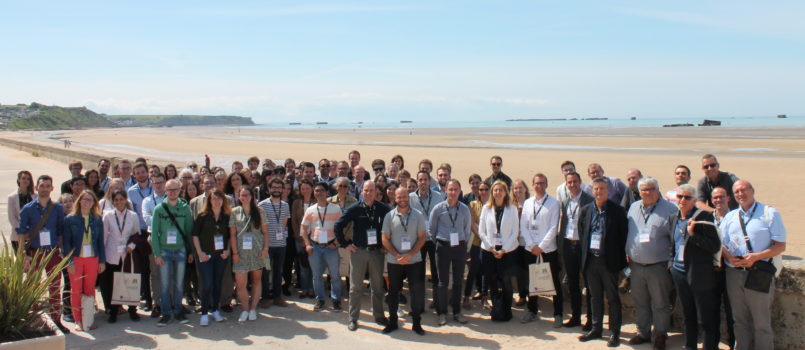
The GP2A-JFB 2018 conference, organized by Prof. Patrick Dallemagne – Univ. Caen, Prof. Thierry Besson – Univ. Rouen and Prof. Christophe Rochais – Univ. Caen took place in Asnelles sur Mer (Normandy – F) from 13th to 15th June 2018.
Welcome
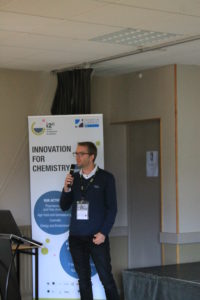 |
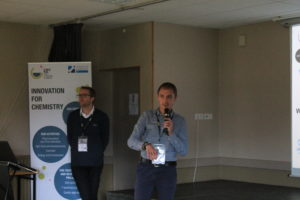 |
| Prof. Raphaël Frédérick University of Louvain (B) JFB grouping |
Prof. Pascal Marchand University of Nantes (F) Chair of GP2A |
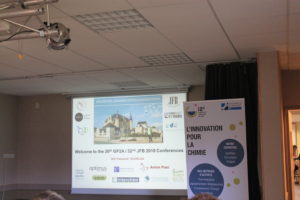 |
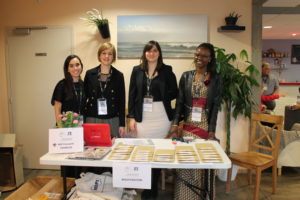 |
| Welcome slide | Welcome Team |
Plenary lectures
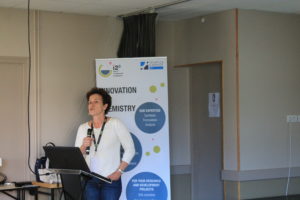 |
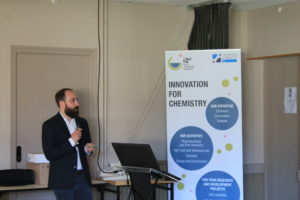 |
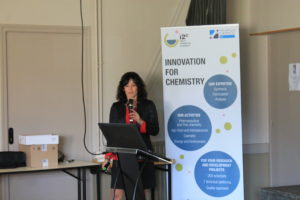 |
| Dr Louisa Barré – CEA University of Caen (F) |
Dr Thomas Cailly University of Caen (F) |
Dr Corinne Fruit University of Rouen (F) |
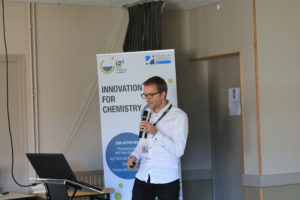 |
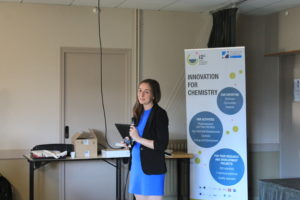 |
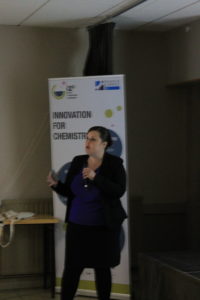 |
| Prof. Raphaël Frédérick University of Louvain (B) |
Dr Niamh O’Boyle University of of Dublin (IRL) |
Dr Tatiana Besset University of Rouen (F) |
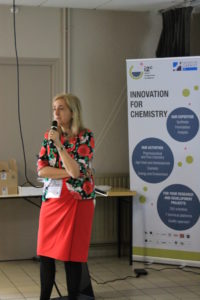 |
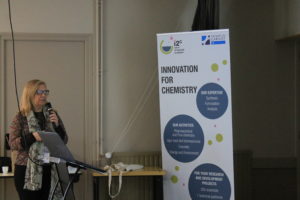 |
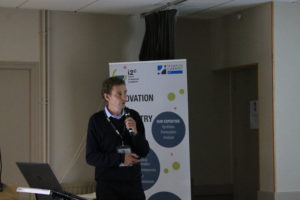 |
| Prof. Maria Laura Bolognesi University of Bologna (I) |
Prof. Maria-João R. P. Queiroz University of Minho, Braga (P) |
Prof. Pascal Bonnet University of Orléans (F) |
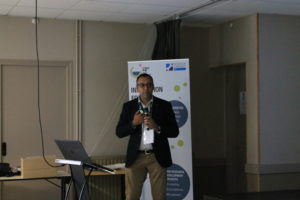 |
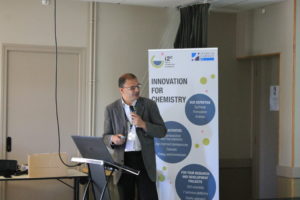 |
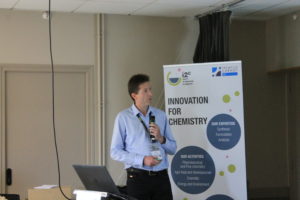 |
| Dr Shailesh Mistry University of Nottingham (UK) |
Prof. A. Ganesan University of East Anglia, Norwich (UK) |
Dr Cédric Logé University of Nantes (F) |
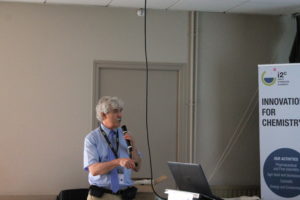 |
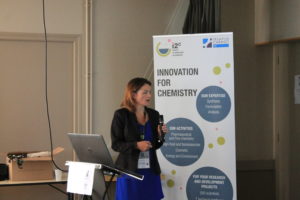 |
|
| Prof. Johan Van der Eycken University of Ghent (B) |
Prof. Anne-Sophie Voisin-Chiret University of Caen (F) |
Early career researchers’ showcases
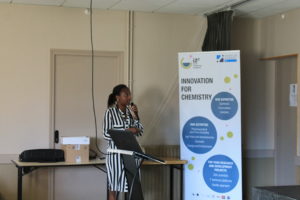 |
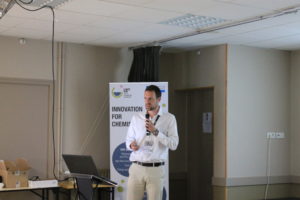 |
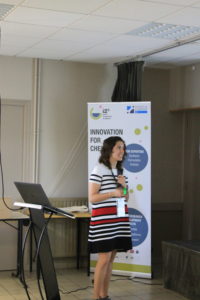 |
| Dr Jade Fogha – ICOA University of Orléans (F) |
Dr Clément Fontenelle – LCMT University of Caen (F) |
Dr Marta Abellán-Flos ICMMO University of Orsay (F) |
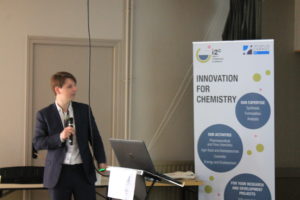 |
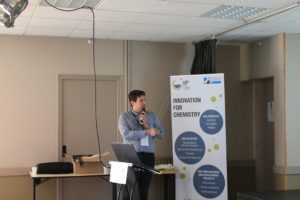 |
|
| Dr Charles Skarbek – ICMMO University of Orsay (F) |
Dr Julien Diharce – ICOA University of Orléans (F) |
Flash presentations of posters (PhD students)
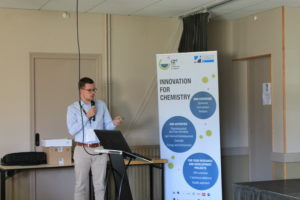 |
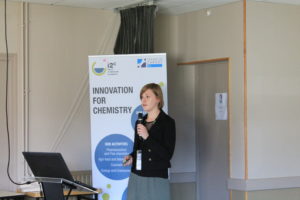 |
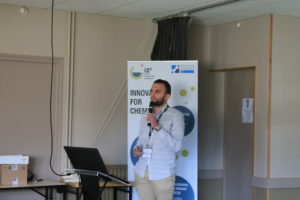 |
| Thomas Dal Maso University of Namur (B) |
Pauline Zipfel University of Caen (F) |
Yvain Gérard University Clermont Auvergne (F) |
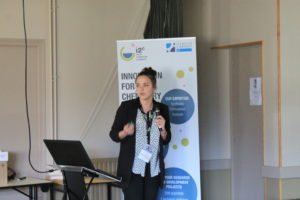 |
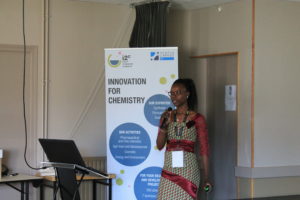 |
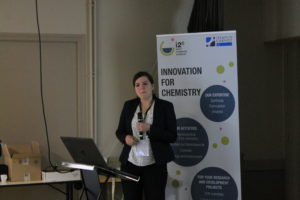 |
| Irène Pachon University of Besançon (F) |
Windbedema Ouedraogo University of Caen (F) |
Pauline Loupias University of Picardie (F) |
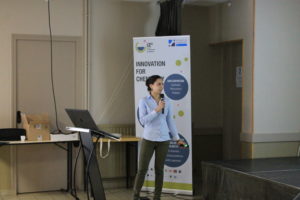 |
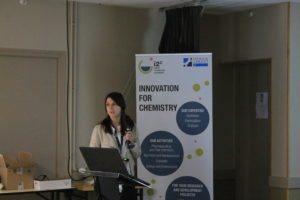 |
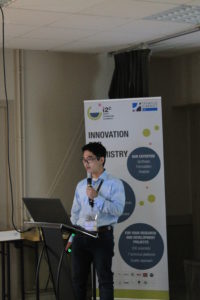 |
| Sangheeta-Laura Thirumaran University of Caen (F) |
Fanny Danton University Le Havre Normandie (F) |
Viet Hung Dao University of Nantes (F) |
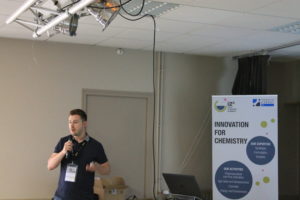 |
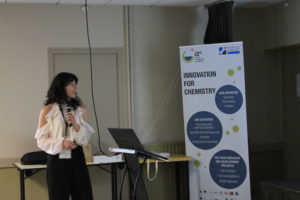 |
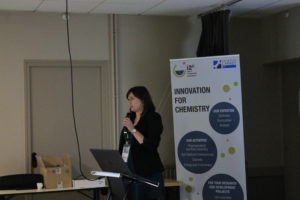 |
| Reynald Mangeant University of Caen (F) |
Amanda Garrido University of Tours (F) |
Caroline Lanthier University of Caen (F) |
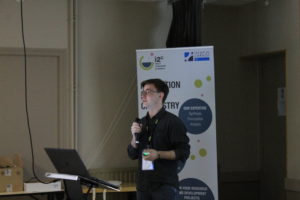 |
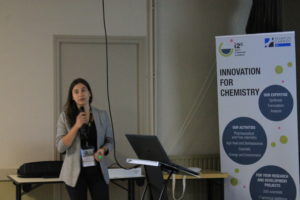 |
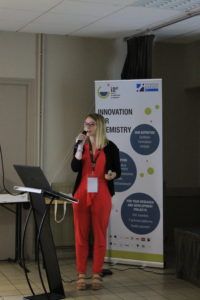 |
| Gilles Degotte University of Liège (B) |
Agnieszka Zak University of Orléans (F) |
Bérénice Hatat University of Caen & Montpellier (F) |
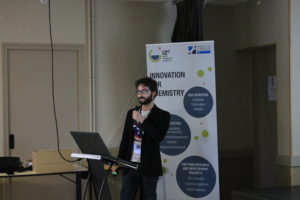 |
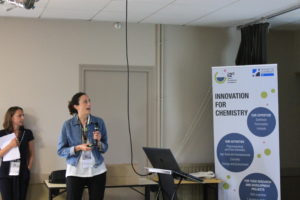 |
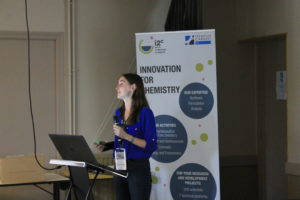 |
| Léo Faïon University of Lille (F) |
Martina de Pascale University of Caen (F) |
Alice Ameryckx University of Louvain (B) |
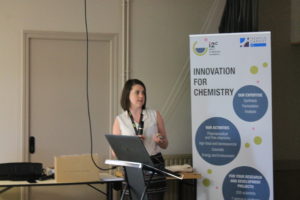 |
||
| Christina Picken University College London (UK) |

Best Oral Presentations
Reynald Mangeant, University of Caen – France: Fluorinated indazole derivatives: promising structures for 5-HT4 receptors PET radiotracers
Dr Jade Fogha, University of Orléans – France: Crystallization additives, not so useless in in-silico kinase research
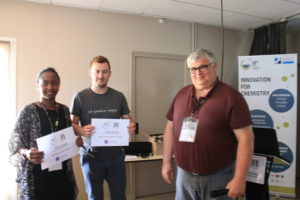
Best Posters
Florence Couly, University of Rouen – France: Promising DYRK1A inhibitor synthesized by late-stage C-H Arylation (right)
Birgit Gaiser, University of Copenhagen, Denmark: Targeting Metastable Binding Sites with Bitopic Ligands – A New Concept in GPCR Medicinal Chemistry (left)
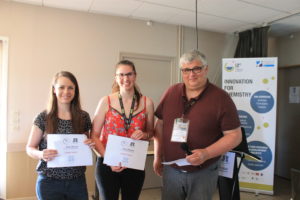
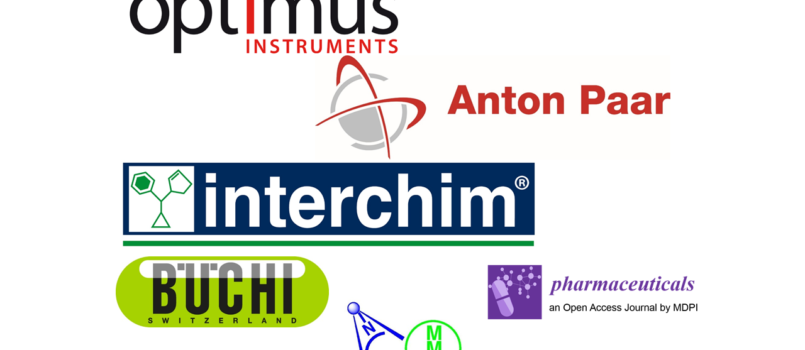
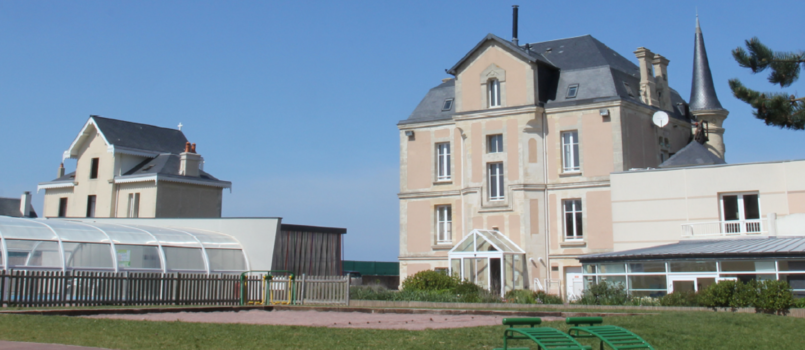
This year’s conference, GP2A-JFB 2018, organised by members from the Universities of Caen and Rouen will take place between 13th and 15th June at Asnelles sur Mer (Normandie).
Final program schedule is available HERE !!
Prizes will be given during the congress.
– 2 Best Poster Awards sponsored by ManRos Therapeutics
– 1 Best “PhD short communication” Award sponsored by MDPI
– 1 Best “Young researcher communication” Award sponsored by MDPI
As a joint meeting with the 32nd Journées Franco-Belges de Pharmacochimie, the 26th Annual GP2A Medicinal Chemistry Conference will provide a unique opportunity to engage with a wide group of European Chemists.
The “Journées Franco-Belges de Pharmacochimie” (JFB) is a widely recognized annual meeting on Medicinal Chemistry. This two-day symposium, whose first edition was held in 1986, aims to promote exchanges between medicinal chemists, mainly from France and Belgium. It is renowned for the advanced science presented, conviviality, and outstanding opportunities for senior and young scientists to exchange knowledge. An important part of the scientific program, besides plenary lectures given by internationally recognized scientists, is usually devoted to open lectures giving the opportunity for young scientists to present their research. The themes discussed during the meeting are those generally encountered by medicinal chemists: organic synthesis, bioinformatics and computer-aided drug design, pharmacological tests and molecular biology.
Registration fees
# Including 2 nights (Wednesday + Thursday) + 2 breakfasts (Thursday + Friday) + 3 lunches (Wednesday + Thursday + Friday) + 1 dinner (Wednesday) + 1 gala dinner (Thursday)
Academic: €300
PhD student: €200
Post-doctoral researcher: €200
Industrial: €350
# extra night (Tuesday) + 1 dinner (Tuesday) + 1 breakfast (Wednesday)
Academic: €365
PhD student: €265
Post-doctoral researcher: €265
Industrial: €450
Deadline for registration: 30th April 2018
Start of registration and abstract submission: 1st February 2018
Postdoctoral researchers and young Lecturers will be able to present their work as poster or as oral presentation (15 minutes + questions). Some abstracts will be selected by the Scientific Committee for oral presentation, the others will be presented as posters.
PhD students will be able to present their work as posters. Some abstracts will be selected for additional flash oral presentation (5 minutes w/o question).
PLEASE SUBMIT YOUR ABSTRACT HERE !! (abstract template)
For the venue to the site of congress, a shuttle will be available for free from Caen to Annelles sur Mer. More details will follow.
Most of the accommodation included in the registration are twin rooms. For single room booking, please contact the local organising committee.

– Dr Louisa Barré, CEA, University of Caen, France
Rational development for a PET radiopharmaceutical probe
– Dr Tatiana Besset, University of Rouen, France
Combining organofluorine chemistry and C-H activation: New tools to fluorinated molecules
– Prof. Maria Laura Bolognesi, University of Bologna, Italy
Can theranostic small molecule combat neurodegenerative diseases?
– Prof. Pascal Bonnet, University of Orléans, France
In silico Fragment-Based Design of Kinase inhibitors
– Dr Thomas Cailly, University of Caen, France
Radio-iodination using a C-H activation approach
– Prof. Raphaël Frédérick, University of Louvain, Belgium
Disrupting the metabolic adaptation of cancer cells with small molecules as a promising anticancer strategy
– Dr Corinne Fruit, University of Rouen, France
Late-stage C-H arylation of thiazolo[5,4-f]quinazolin-9(8H)-one backbone: Synthesis of an array of potential kinase inhibitors
– Prof. A. Ganesan, University of East Anglia, Norwich, United Kingdom
Targeting epigenetic erasers for drug discovery
– Dr Cédric Logé, University of Nantes, France
New azole antifungals with fused pyrimidinone and triazinone derivatives
– Dr Shailesh Mistry, University of Nottingham, United Kingdom
Molecular interrogation of multiple signalling states of the Beta-1 adrenoceptor
– Dr Niamh O’Boyle, University of Dublin, Ireland
New anti-cancer small molecules
– Prof. Maria-João R. P. Queiroz, University of Minho, Portugal
Synthesis of new di(hetero)arylamines derivatives of thieno[3,2-b]pyridines and evaluation of their neuroprotective activity on transgenic Caenorhabditis elegans -for Machado Joseph disease- as a model of study and toxicity
– Prof. Anne-Sophie Voisin-Chiret, University of Caen, France
Pyridoclax and its derivatives directly inhibit Mcl-1 and exert potent antitumor effects on ovarian cancers in vitro and in vivo
– Prof. Johan Van der Eycken, Ghent University, Belgium
Total synthesis and biological evaluation of Pelofen, a simplified analogue of Peloruside A with microtubule-stabilizing activity
CVs in brief…
| Dr Louisa Barré CEA, University of Caen, France |
Head of the research team « Développements Méthodologiques en Tomographie par Emission de Positons » located at Caen on the imaging platform Cyceron. She has an expertise in – Radiochemistry using short-lived radionuclide (carbon-11, fluor-18, gallium-68) for PET imaging- innovative approaches – The development and evaluation in vivo of PET radiopharmaceuticals for diagnosis. She is involved in the “think tank” in the future of radiopharmaceutical compounds held under the auspices of “Health-related Technologies” piloted by Aviesan and France Life Imaging and in the “Club des radiopharmaceutiques. Its research is mainly focused on PET radiopharmaceutical for oncology. |
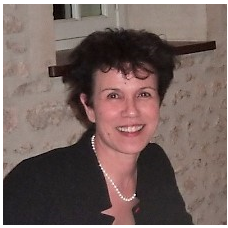 |
|
| Dr Tatiana Besset University of Rouen, France |
Dr Tatiana Besset obtained, in 2009, her PhD thesis in organic chemistry in the group of Dr A. E. Greene (University of Grenoble, France). After a first postdoctoral fellow in the group of Prof. F. Glorius (WWU Münster, Germany) and a second one in the group of Prof. J. N. H. Reek (University of Amsterdam, Netherlands), she is working, since 2012, as a CNRS Associate Researcher in the “Fluorinated Biomolecules Synthesis” team (headed by Prof. X. Pannecoucke, UMR 6014, Rouen, France). Her research focuses on the transition metal-catalyzed C–H activation and the development of new strategies for the synthesis of fluorinated building blocks. |
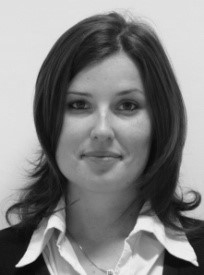 |
|
| Prof. Maria Laura Bolognesi University of Bologna, Italy |
Maria Laura Bolognesi is Professor of Medicinal Chemistry at the University of Bologna and an Associate Editor of Journal of Medicinal Chemistry. Her research interest are in the field of the design, synthesis, and pharmacological investigation of small molecules for neurodegenerative and neglected tropical diseases. She has a track record of 150 publications in high-ranked scientific journals, including patents and patent applications, and more than 60 invited talks worldwide. She was awarded a Distinguished Visiting Professor Fellowship at the Complutense University of Madrid in 2009 and a PVE Fellowship at the University of Brasilia (2014-2017). |
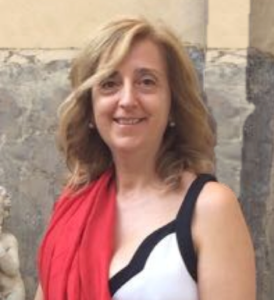 |
|
| Prof. Pascal Bonnet University of Orléans, France |
In 2012, Pascal Bonnet joined the Institute of Organic and Analytical Chemistry (ICOA) from the University of Orléans as full professor. Since then, he is leading the group of Structural Bioinformatics and Chemoinformatics, which develops and integrates novel computational methods for drug discovery. His research interests also focus on the development of an integrative in silico platform for kinase research. Since 2016, he is director of the ICOA. After completing his PhD in 2001 at the University of Orléans (France) and the University of Barcelona (Spain), he moved to a postdoctoral position at the University of Manchester, UK. As a scientist, he joined Janssen-Cilag in France and then Janssen-Pharmaceutica in Belgium in 2003. He was involved in several drug discovery projects mainly in the oncology therapeutic area. Promoted Principal Scientist in 2010, he was leading the Kinase Platform at Janssen. He contributed to the design of a clinical drug candidate, erdafitinib, a kinase inhibitor discovered by FBDD currently in Phase II clinical trials. |
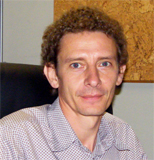 |
|
| Dr Thomas Cailly University of Caen, France |
Dr Thomas Cailly obtained is PhD from the University of Caen (2006) under the supervision of Pr. S. Rault. In 2006, he was appointed teaching and research assistant at the University of Caen and in 2007 research engineer. In 2008, he joined the group of Pr. M. Begtrup at the University of Copenhagen as a post-doctoral fellow. In 2009, he was appointed maître de conférences in bio-inorganic chemistry at the University of Caen and in 2014 joined the group of Pr. V. Gouverneur in Oxford for one year as a visiting scientist. His current research interests in the Centre d’Etudes et de Recherche sur le Médicament de Normandie (CERMN) include: medicinal chemistry applied to diagnostic tools, radio-iodination methodologies and C-H activation processes. |
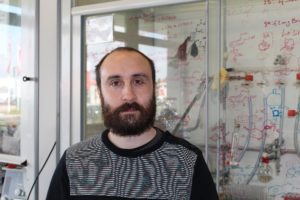 |
|
| Prof. Raphaël Frédérick University of Louvain, Belgium |
Professor of Medicinal Chemistry, Louvain Drug Research Institute (LDRI), Medicinal Chemistry Research group, Université Catholique de Louvain (UCL), Bruxelles, Belgium 2015 – Louvain Drug Research Institute (UCL) – Vice-President Main interests: medicinal chemistry in the broad sense, with a particular emphasis on rational computer-aided drug design and fragment-based drug discovery approaches. Targets mainly related to the field of anticancer immunotherapy and cancer metabolism |
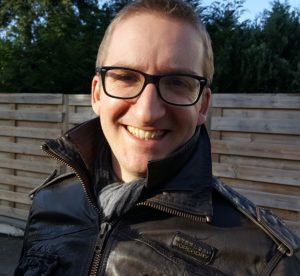 |
|
| Dr Corinne Fruit University of Rouen, France |
Corinne Fruit received her Ph.D. degree from the University of Rouen in 2001. She undertook postdoctoral studies at the University of Ottawa with Pr Alex Fallis, working on the synthesis of new heteroarenes as kinase inhibitors, following by 2 years at the University of Geneva with Pr Paul Müller, dealing with rhodium catalyzed asymmetric transfer of nitrenes. In 2005, She joined the COBRA laboratory in Rouen as “Maître de Conférences”. Her current research area focuses on the development of new strategies for incorporating structural diversity into complex nitrogen containing heterocycles as valuable scaffolds for kinase inhibition. |
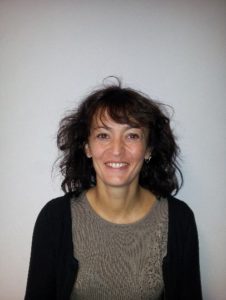 |
|
| Prof. A. Ganesan University of East Anglia, Norwich, United Kingdom |
B.Sc. in Chemistry and Microbiology, National University of Singapore. Ph.D. in Chemistry, University of California-Berkeley. Postdoc in Chemistry, Harvard University. Academic positions at the Institute of Molecular and Cell Biology, Singapore and the University of Southampton, UK before present position at UEA. Interests in chemical biology and medicinal chemistry, particularly epigenetics and natural products. Chair of the EU network COST Action Epigenetic Chemical Biology. Co-founder of the drug discovery company Karus Therapeutics. |
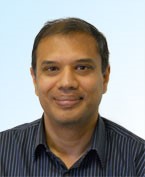 |
|
| Dr Cédric Logé University of Nantes, France |
Dr Cédric Logé is in charge of molecular modeling in the Department of Medicinal Chemistry of IICIMED-EA1155 (Nantes). He studied Organic Chemistry at the University of Lille 1 and did a PhD in Medicinal Chemistry at the University of Lille 2 under the supervision of Prof. Daniel Lesieur. After a postdoctoral fellow in molecular modeling with Prof. Philippe Chavatte, he joined the Faculty of Pharmacy of Nantes as an assistant professor in the Group of Pr. Robert, then Pr. Le Pape (IICIMED EA1155). His current research focus is in the area of invasive fungal infections with the goal of designing novel antifungal agents aided by molecular modeling tools. |
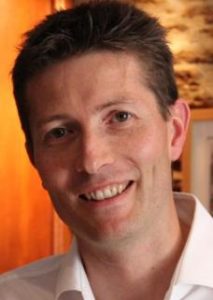 |
|
| Dr Shailesh Mistry University of Nottingham, United Kingdom |
Dr Shailesh Mistry obtained his MPharm (Hons) degree (2003) and PhD (2009) from the School of Pharmacy, University of Nottingham. His PhD work (with Prof. Barrie Kellam/Prof. Steve Hill) focused on the development of highly selective ligands for the Beta-1 adrenoceptor and formed the basis of a Wellcome Trust Seeding Drug Discovery project, on which he completed his first postdoctoral position, and which culminated in the development of highly selective pre-clinical candidate compounds. Subsequently, he undertook a senior postdoctoral position in the group of Prof. Peter Scammells at the Monash Institute of Pharmaceutical Sciences (Melbourne, Australia), with a primary focus on the development of small molecule allosteric modulators for a range of G Protein-Coupled Receptors (GPCRs). In 2014 he returned to Nottingham as an Assistant Professor in Medicinal Chemistry. Current research interests continue to focus on the medicinal chemistry and chemical biology of ligands targeting GPCRs |
 |
|
| Dr Niamh O’Boyle University of Dublin, Ireland |
Dr. Niamh O’Boyle received her BSc(Pharm) and PhD degree from Trinity College Dublin, and subsequently was awarded a postdoctoral scholarship at University of Göteborg in Sweden to investigate the allergenic activity of epoxides and epoxy resins. Subsequently, she was awarded a Government of Ireland Postdoctoral Research Fellowship at the School of Biochemistry & Immunology, TCD, working on ‘Cancer, Tubulin and Free Radicals: New Therapy’. Following a period as assistant lecturer at the School of Chemical and Pharmaceutical Sciences at Dublin Institute of Technology, she was appointed as assistant professor at the School of Pharmacy & Pharmaceutical Sciences at Trinity College Dublin in 2017. Her research interests lie in the areas of improving patient outcomes by applying the principles of medicinal chemistry. |
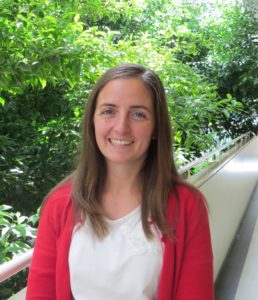 |
|
| Prof. Maria-João R. P. Queiroz University of Minho, Portugal |
Maria‐João Queiroz first graduated in Pharmaceutical Sciences in the Univ. of Porto‐Portugal (1986) followed by a PhD in Organic Chemistry (1993) in the Univ. of Minho‐ Portugal and carried out postdoctoral studies in heterocyclic chemistry in the Univ. of Metz‐France (1994). She is Coordinator Researcher since June 2009 in the Department/Centre of Chemistry of the Univ. of Minho and has a wide range of research interests in heterocyclic and medicinal chemistry |
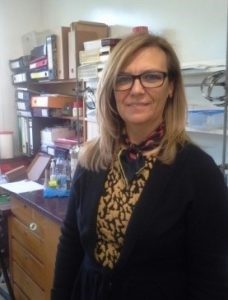 |
|
| Prof. Anne-Sophie Voisin-Chiret University of Caen, France |
Pharm.D. (2002); Ph.D. Caen (2005), University of Caen Normandie (France). Lecturer in Medicinal Chemistry (2007) in the School of Pharmacy at the University of Caen. Since September 2015, she has assumed the position of Prof. of Medicinal Chemistry. Her research interests include medicinal chemistry in the field of protein-protein interactions, in order to design oligo(het)aromatic foldamers that mimic the ability of proteins to fold into well-defined conformations, such as helices and β-sheets. Since 2012 she has been leading a research program dedicated to the development of foldamers of interest in the treatment of ovarian cancers and neurodegenerative diseases. |
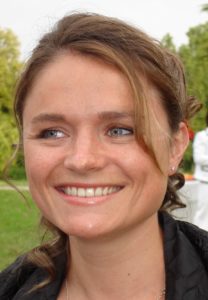 |
|
| Prof. Johan Van der Eycken Ghent University, Belgium |
Johan Van der Eycken (PhD from Ghent University [1986]; postdoctoral stay at Bergische Universität, Wuppertal, Germany [1986]) is Professor in Organic Chemistry and Head of the Laboratory for Organic and Bioorganic Synthesis (LOBOS) at Ghent Universtity (UGent), Belgium. His main research topics are design of novel chiral ligands for asymmetric transition metal catalysis, total synthesis of complex biologically active compounds (e.g. Lipid II analogues, macrocyclic antibiotics, e.g. Peloruside A), and solid phase synthesis of peptidomimetics and small organic molecules as privileged scaffolds for drug discovery. |
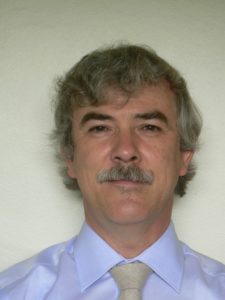 |
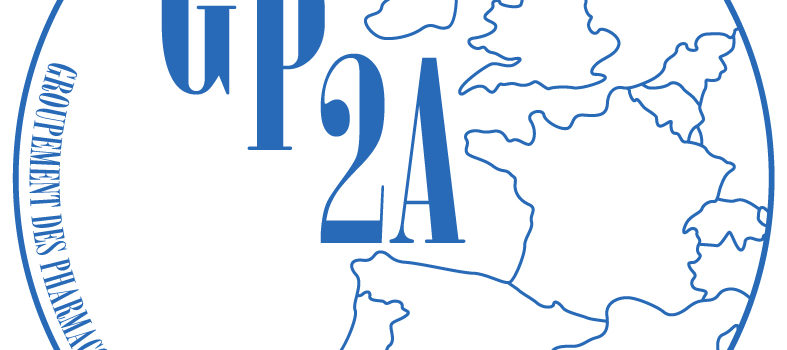
Best Early career researchers presentation
Dr Amit Nathubhai, University of Bath – UK: Dual-site-binding tankyrase inhibitors as potential agents towards the treatment of colorectal cancer and type-2 diabetes

Best Flash presentation
Isabelle Lengers, Westfälische Wilhelms-Universität Münster – Germany: Human Hyal-1 – from in silico pharmacophore modeling to in vitro inhibitor screening
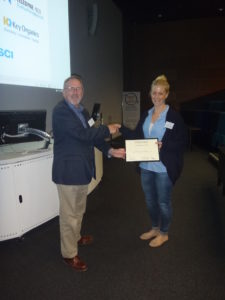
Best Posters
Alexia Ville, University of Angers – France: Semisynthetics pathways starting from δ-garcinoic acid towards anti-inflammatory tocotrienols isolated from New-Caledonian endemic plants
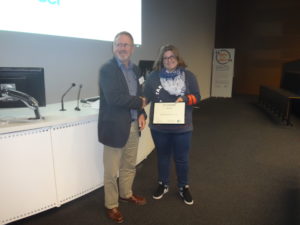
Michael B. C. Kenny, University of Bath – UK: Synthesis and evaluation of a range of seco-amino-CBIs as highly cytotoxic DNA alkylating agents
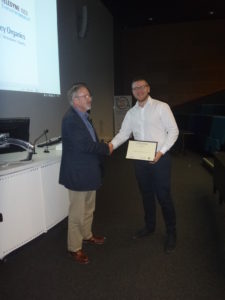

Poster sessions and drinks reception
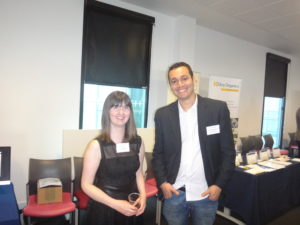
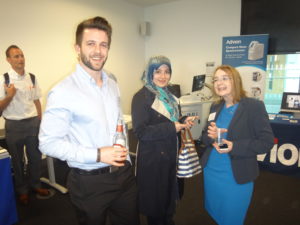
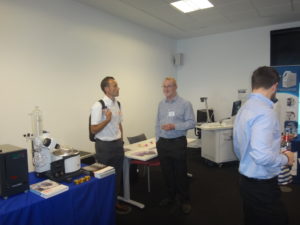
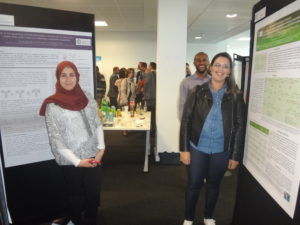
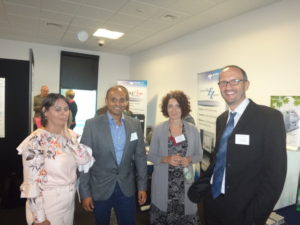
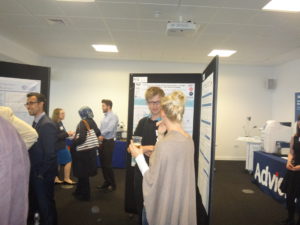
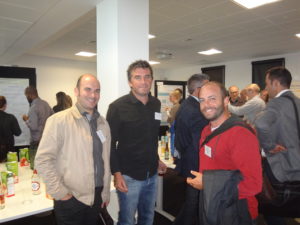
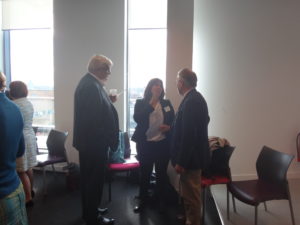
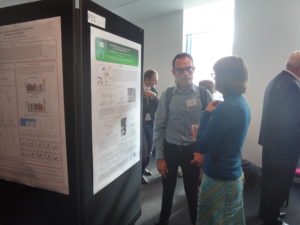
Conference dinner at Victoria Gallery & Museum of Liverpool




